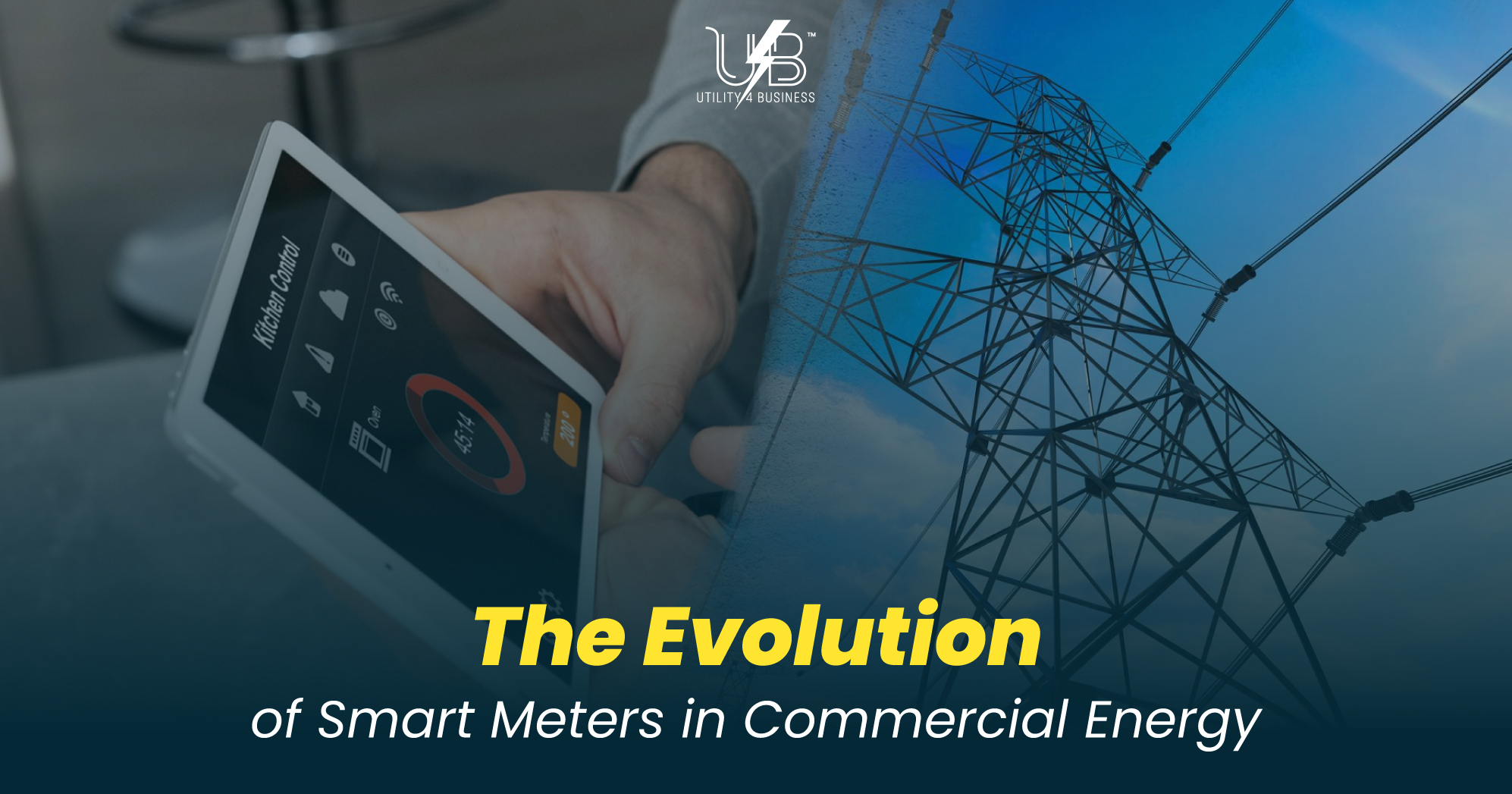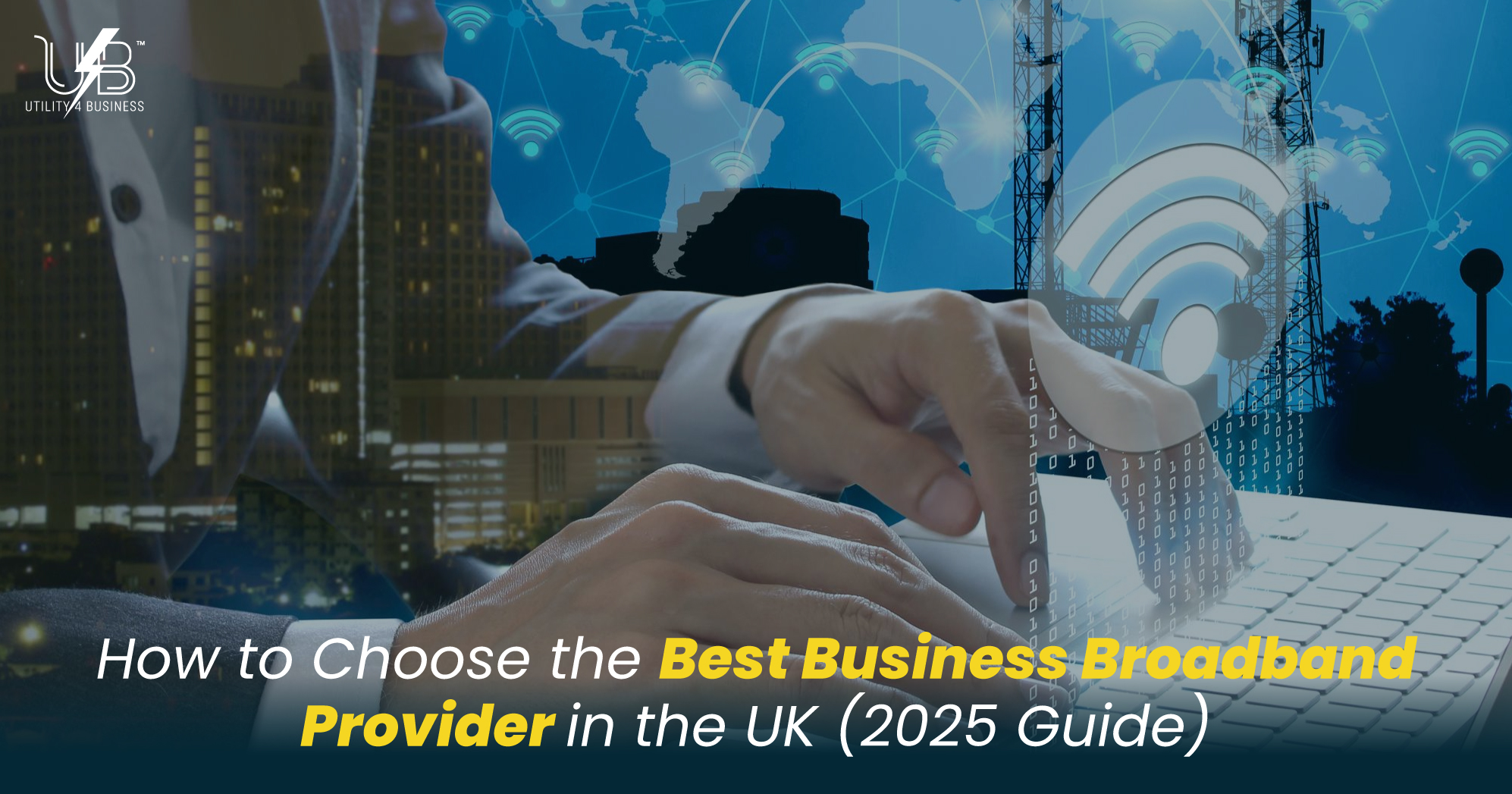The Evolution of Smart Meters in Commercial Energy
Compare Business Electricity Rates with Smart Meters

In today’s competitive business landscape, energy efficiency and cost savings are top priorities for companies of all sizes. Smart meters have revolutionized energy management, giving businesses greater control over their energy usage. This article explores the evolution of smart meters in commercial energy, highlighting their benefits, adoption rates, and future potential for UK businesses.
What Are Smart Meters?
Smart meters are advanced energy monitoring devices that provide real-time data on electricity and gas usage. Unlike traditional meters, they eliminate the need for manual readings by transmitting data directly to energy suppliers via secure networks. This ensures accurate billing and empowers businesses to make informed energy decisions.
According to the UK Government, over 33 million smart meters have been installed in homes and businesses as part of the national rollout programme. This initiative supports the country’s goal of achieving net-zero carbon emissions by 2050.
The Evolution of Smart Meters: From Basic to Intelligent
The journey of smart meters began with the inefficiencies of traditional energy meters. Over time, they have evolved through three key phases:
Early Digital Meters
The first generation of smart meters offered digital readings but had limited functionality. Data collection still required on-site visits.
Advanced Metering Infrastructure (AMI)
The next generation introduced remote data transmission, two-way communication with energy suppliers, and integration with energy management systems. Businesses could now track energy usage in near real-time.
AI and IoT-Enabled Smart Meters
Today’s smart meters use Artificial Intelligence (AI) and the Internet of Things (IoT) to predict energy demand, optimize usage, and detect inefficiencies. They also integrate with energy-saving technologies like smart thermostats and automated lighting systems.
How Smart Meters Benefit UK Businesses
Smart meters do more than ensure accurate billing—they transform energy management. Here’s how they benefit businesses across the UK:
Enhanced Energy Efficiency
Businesses can monitor real-time consumption patterns and reduce energy waste. For example, manufacturers can adjust machine operations based on peak and off-peak energy demand. This also helps businesses make informed decisions when they compare electricity prices to secure better deals.
Cost Savings
With precise usage data, businesses can negotiate better tariffs or select the right electricity supplier. Studies show that companies using smart meters can reduce energy costs by 10-15% annually.
Improved Sustainability
Smart meters help businesses implement greener practices, supporting the UK’s sustainability goals and reducing carbon footprints.
Accurate Forecasting and Budgeting
Predictive analytics from smart meters allow businesses to forecast energy needs and set realistic budgets—particularly useful for industries with seasonal demand fluctuations. Understanding business electricity rates can further support better energy planning.
Regulatory Compliance
Businesses participating in energy compliance programmes, such as the Energy Savings Opportunity Scheme (ESOS), benefit from precise consumption data for reporting purposes.
Smart Meter Adoption in the UK
The adoption of smart meters among UK businesses has grown steadily over the past decade. As of 2024, around 50% of small and medium enterprises (SMEs) have installed smart meters, driven by rising energy costs and government incentives.
The UK’s Smart Metering Implementation Programme (SMIP) has played a crucial role in this growth. The government aims to offer smart meters to all businesses and households by 2025, promoting transparency and efficiency in energy consumption.
However, challenges remain. Large enterprises with complex energy needs may require custom solutions, making standard smart meters less viable. Additionally, the upfront installation cost can deter smaller businesses, despite long-term savings.
How Utility4Business Helps Overcome These Challenges
At Utility4Business, we simplify energy management by offering expert advice and tailored energy comparison services. Here’s how we can help:
Personalized Energy Audits
We assess your current energy setup and identify how a smart meter can optimize your usage.
Supplier Comparisons
Our platform compares tariffs from over 20 suppliers, ensuring you secure the best deal for your business needs. Learn more about commercial electricity solutions for small businesses.
Sustainability Support
We guide businesses in using smart meters to adopt greener practices, contributing to a more sustainable future.
The Future of Smart Meters in Commercial Energy
The next phase of smart meters involves integrating cutting-edge technologies. Future trends in electricity pricing such as blockchain-enabled energy trading and AI-driven demand response systems are set to redefine business energy management.
As renewable energy adoption increases, smart meters will play a crucial role in balancing supply and demand.
For UK businesses, the question is no longer if they should transition to smart meters, but when. Embracing this technology ensures cost savings, regulatory compliance, and a commitment to environmental responsibility—key factors for modern businesses.
Take the Next Step with Utility4Business
Smart meters are transforming commercial energy management by offering real-time insights, reducing costs, and supporting sustainability goals.
Ready to optimize your energy strategy? At Utility4Business, we make energy management simpler, smarter, and stress-free.
📞 Contact Us: 0800-058-4297
📧 Email: info@utility4business.com
🌐 Visit Us: utility4business.com
Find This Article Helpful? Share It Now!
At Utility4Business, we offer top-notch customer support and business utility solutions for businesses across the UK. Consider sharing this article and helping others discover how our expertise can add value to their business success.

Read Our Latest Posts
Explore our latest blog posts and learn how Utility4Business can support your business growth with tailored utility solutions and services. Stay ahead of the curve with the latest information from industry experts and take advantage of our user-friendly comparison services to find the best business deals.


Get Connected
At Utility4Business, our team of experts can help you figure out the highest-value business utility deals that will help your business grow over time.


